Meet Devaki Jain, A Gandhian Economist Who Has Spent a Lifetime Fighting for Women’s Rights
For her work in advocating gender equality, Devaki Jain was conferred the Bradford Morse Memorial Award by the UN.
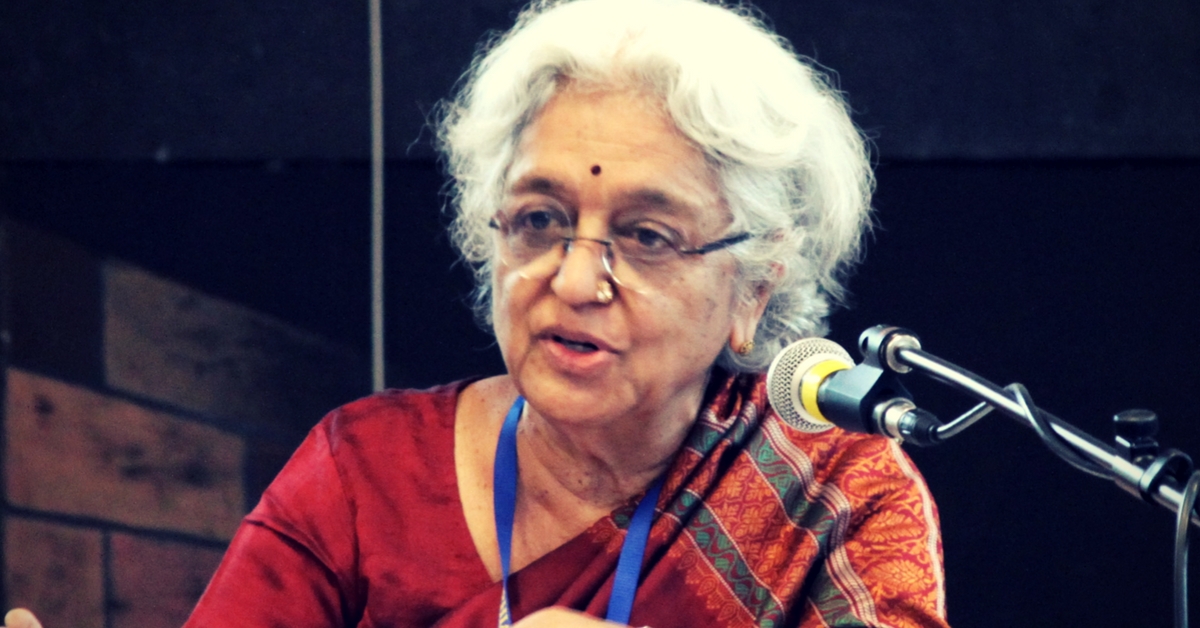
She’s a renowned writer. An internationally respected economist. The winner of the prestigious Padma Bhushan award. And for decades has been an activist fighting for the rights of women and the poor of India.
And that’s just the tip of the iceberg if one has to describe the astonishingly prolific life and career of Devaki Jain, a development economist, who has long been smashing barriers in India and fighting poverty using Gandhian philosophy.
Early life
Born in 1933, in Mysore, Karnataka, Devaki’s father was a civil servant called M. A. Sreenivasan. Her father himself lived an incredible life having been a minister in what was earlier the Princely State of Mysore.
Education was a main priority in Devaki’s home as she was sent to a slew of convent schools in pre-independent India.
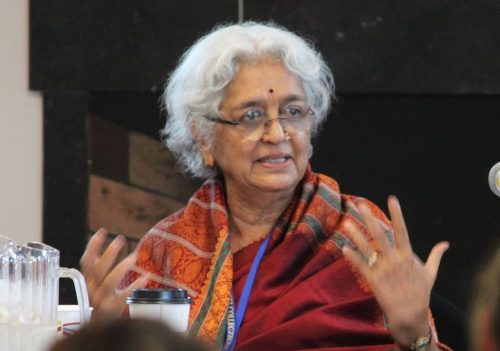
Image source: Wikimedia
A highly intelligent young woman, Devaki, attended Mysore University where she studied Mathematics and Economics and subsequently graduated with three gold medals. At a time when women weren’t even allowed to attend school, Devaki would then go on to attend St. Anne.s College, Oxford University, UK where she studied economics. She became a professor at Delhi University till 1969 where she taught economics.
Advocacy and women’s rights
In 1966, Devaki married Gandhian freedom fighter and writer, Lakshmi Chand Jain.
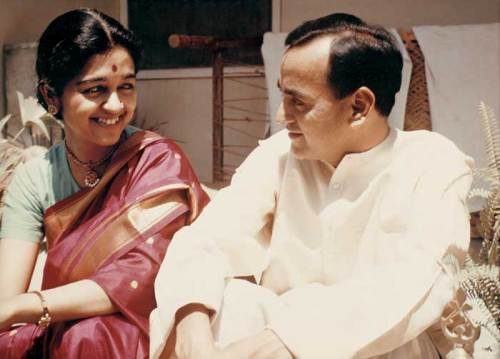
Image source
And it was also around this period that her lifelong tryst fighting for women’s rights began. As she herself notes, she was unaware of feminism or women’s rights movement. It was only after a publisher approached her to write or edit a book about the status of women in India did she realise the deep chasm that divided men and women in the country. And she became involved in women’s rights.
Her friendship with feminist Gloria Steinem, whom she met in America also played a crucial role in how Devaki came to view women’s rights. During one of their conversations, Steinem spoke to her about the importance of women working together to empower themselves and this left an indelible mark on Devaki who came to identify herself as a feminist even she was met with derision in India for the very fact
Between 1973 and 1975, she edited and published Indian Women, for the Government of India, Publication Division and it also when she began putting together resources to found the Institute of Social Studies Trust in Delhi. The body has since conducted in-depth research on Indian women, especially ones stricken by poverty. She also went on to start the Indian Association of Women’s Studies (IAWS), Development Alternatives for Women for a new Era (DAWN), and Kali, Feminist Publishing House.
She also played a huge role in helping organisations like SEWA Ahmedabad to spread their message to larger platforms across the country.
Fighting for women’s rights became a matter of crunching numbers
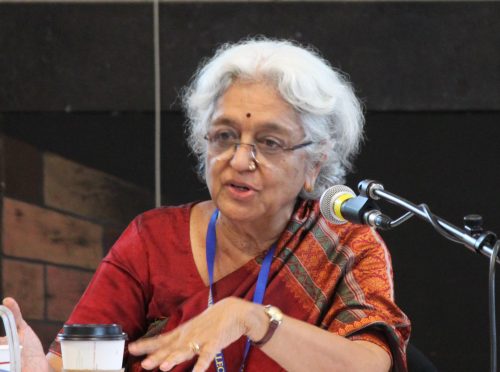
Image source: Wikimedia
In a freewheeling interview with Cherwell, Devaki spoke about how she used economics to further her fight for women’s rights in the country. She says that she noticed, “in statistics, you define a worker as main, subsidiary, supplementary etc. Women are usually categorised as a supplementary. But I was able to argue nationally that amongst the poor, women are the main breadwinners as they are willing to do anything; sweeping, cleaning, selling scraps, anything to put food on the table. Then I realised that I had to visualise what women are as economic agents.”
Understanding rural India
Through the course of her life, a staunch Gandhian herself, she has used Mahatma Gandhi as her guiding light when it comes to dealing with economics. She advocated democratic decentralisation and approached her work with a strong sense of Gandhian morals.
You may also like: MY VIEW: Why I Believe in the 3 L’s For Women Empowerment – IMF Chief Christine Lagarde
She has worked with the Government of India in various capacities and was instrumental in designing credit programmes for rural women, was a member of a number of policy task forces for the country and was part of the core committee.
Her work has indelibly helped women across the country and by working with the government she has helped improve the conditions of millions of women in the country.
Fighting alongside the UN
Any profile of Devaki Jain would be incomplete without mentioning the extensive work she did internationally for the emancipation of the women and poor through her association with the UN. In fact, she even wrote a book, Women, Development, and the UN: A Sixty-Year Quest for Equality and Justice, highlighting how the fight for women’s rights has come along over the years.
She was the Chair of the Advisory Committee on Gender for the United Nations Centre in Asia-Pacific. And from 1987 to 1990, she was a member of the erstwhile South Commission headed by Dr. Julius Nyerere. Along with 26 other hand-picked economists, she helped develop an action agenda for South-South economic co-operation.
You may also like: Watch: Aamir Khan’s latest ad campaign on Women Empowerment!
For all the work she had done in perpetuating gender equality, she was conferred with Bradford Morse Memorial Award by the UN. She happens to be only one of two women to ever get this award.
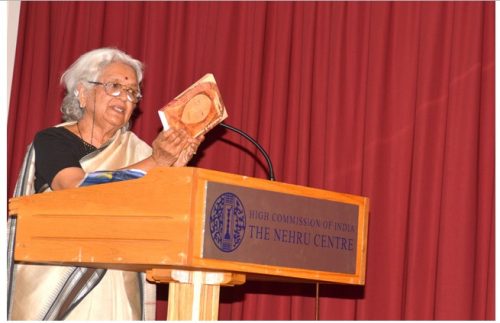
Photo source
And her fight against injustice is still not over. Currently living in Bengaluru, she is as active as ever for advocating for the rights of women and the poor and continues to have her voice heard through in-depth columns in newspapers and by directly engaging with women through various panels.
Her incredible story is still being written.
Like this story? Or have something to share? Write to us: [email protected], or connect with us on Facebook and Twitter.
NEW: Click here to get positive news on WhatsApp!
If you found our stories insightful, informative, or even just enjoyable, we invite you to consider making a voluntary payment to support the work we do at The Better India. Your contribution helps us continue producing quality content that educates, inspires, and drives positive change.
Choose one of the payment options below for your contribution-
By paying for the stories you value, you directly contribute to sustaining our efforts focused on making a difference in the world. Together, let’s ensure that impactful stories continue to be told and shared, enriching lives and communities alike.
Thank you for your support. Here are some frequently asked questions you might find helpful to know why you are contributing?


This story made me
-
97
-
121
-
89
-
167













